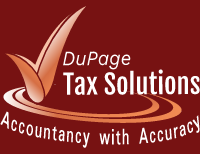
Tax and Accounting Services
About DuPage Tax Solutions
DuPage Tax Solutions is located in Naperville, IL. Our clients are mostly residents and small businesses within the Chicago metropolitan area – DuPage, Cook, Will, and Lake counties. Our remote work capabilities allowed us to extend our services nationwide. Today, we pride ourselves in having clients from all 50 states. Our virtual services are fast, easy, and convenient. Clients submit and review documents electronically through our secured online portal.
House Hacking: What It Could Do for You

House hacking can generate additional cash flow to cover expenses while building equity. This strategy allows you to leverage your home to earn rental income. In this guide, we will explore what house hacking is, its tax advantages and disadvantages, and other critical considerations.
Home » House Hacking: What It Could Do for You
What Is House Hacking?
House hacking involves renting out a portion of your primary residence to generate income. This practice can help you offset mortgage payments, utility bills, and other home expenses.
Examples of House Hacking Include:
- Living in one unit while renting out the others in a multifamily property.
- Renting out part of a duplex.
- Leasing a room or specific space within your home.
Tax Advantages of House Hacking
One of the significant benefits of house hacking is the variety of tax advantages it offers. By renting part of your home, you may claim tax deductions that are otherwise unavailable to standard homeowners.
Immediate Tax deductions
Expenses for the rental portion of your home are tax-deductible. This approach allows you to lower your taxable income while covering property costs. If you do not typically itemize your deductions, house hacking can provide additional opportunities to save on taxes.
Examples of Deductible Expenses Include:
- Mortgage interest
- Repairs
- Utilities
- Property taxes
- Insurance
- Depreciation
Depreciation for Rental Space
Depreciation is another critical advantage of house hacking. You can deduct a portion of your home’s value (specific to the rental space) and other capital expenditures, such as a new roof, over time.
Example: You rent 30% of your property. If the annual depreciation for the entire home is $5,000, you can deduct $1,500 (30% of $5,000) for the rental portion.
Similarly, if you spend $8,000 on a new roof, $2,400 (30% of $8,000) can be depreciated yearly.

Tax Disadvantages of House Hacking
Reduced Ability to Itemize Deductions
Since expenses must be prorated for the rental portion, you may not have enough deductions to itemize your taxes. For example, mortgage interest and property taxes might not reach the threshold needed to itemize.
Tax Liability When Selling Your Property
When selling your home, you may face taxes on the rental portion of the property.
How It Works:
- Section 121 allows you to exclude up to $250,000 ($500,000 if married filing jointly) of gains if you lived in the property for two out of the past five years.
- However, depreciation recapture and capital gains taxes will apply to the rental portion of your home.
Example: You rented out 30% of your property for 15 years and sell it with a $160,000 profit. If you took $15,000 in depreciation, you would owe $3,750 in depreciation recapture taxes (25% of $15,000) and $7,200 in capital gains tax (15% of $160,000 * 30%). Your total tax liability on the rental portion would be $10,950.
1031 Exchange: A Solution for Taxes on Sale
A 1031 Exchange can help you defer taxes when selling a rental property. Under Section 1031 of the IRS Code, you can replace your investment property with another “like-kind” property to avoid taxes on the rental portion.
For house hackers, the IRS applies a split-use approach:
- Section 121 applies to the personal-use portion.
- Section 1031 applies to the rental-use portion.
Consult with a tax professional, like DuPage Tax Solutions, to determine if a 1031 Exchange is right for you.
Learn more about the real estate taxation and 1031 Exchange tax savings.
Should I House Hack?
House hacking can be a great way to reduce living expenses while building wealth. From a tax perspective, the strategy provides opportunities for significant deductions and savings. However, if you plan to sell your home in the future, be mindful of the potential tax implications.
Key Considerations:
- Immediate Benefits: Rental income and deductible expenses can cover costs.
- Long-Term Impact: Selling your home may trigger taxes on the rental portion.
- 1031 Exchange: This strategy can help you avoid taxes when reinvesting in another property.
If you’re thinking about house hacking, DuPage Tax Solutions is here to guide you. We can offer you tailored advice.
You May Also Like These


Should I buy a property now?

Rental Deductions: What are the Rules?

Business Structures for Rental Properties
Ready to Take Control of Your Finances?
Contact us today for personalized tax, accounting, and advisory services tailored to your needs. Let’s work together to achieve your financial goals!

Contact Info
Ph. (630) 909 9700
Email: DPTax@DP-Tax.com
Mail address:
1552 Illinois Rte 59 #1037
Naperville, IL 60564
Business Hours
Mon: 11 am – 7 pm
Tue: 11 am – 7 pm
Wed: 11 am – 7 pm
Thu: 11 am – 7 pm
Fri: 11 am – 7 pm
Sat: 12 pm – 5 pm
Sun: CLOSED
Helpful Links
© 2024 DuPage Tax Solutions | Site Map | Privacy Policy | Disclaimer
